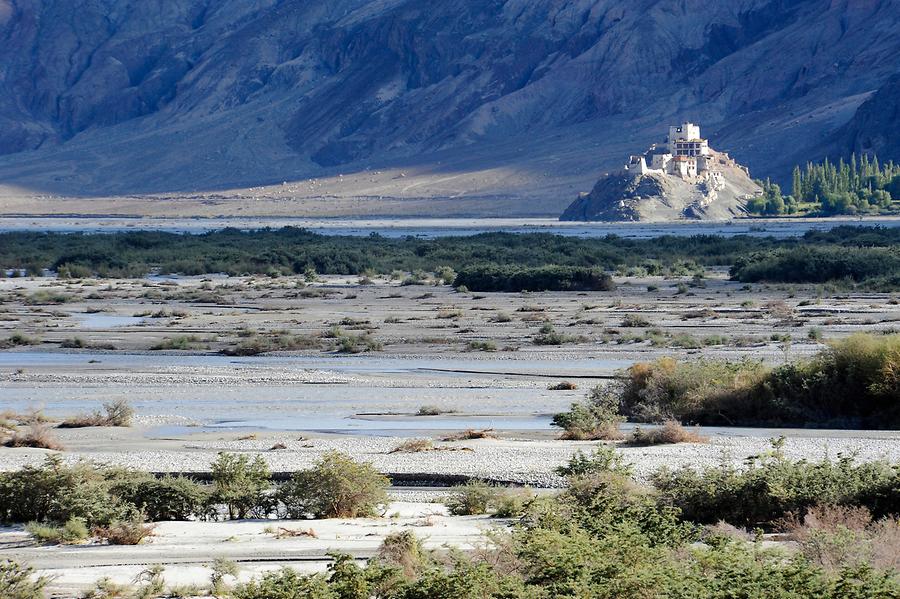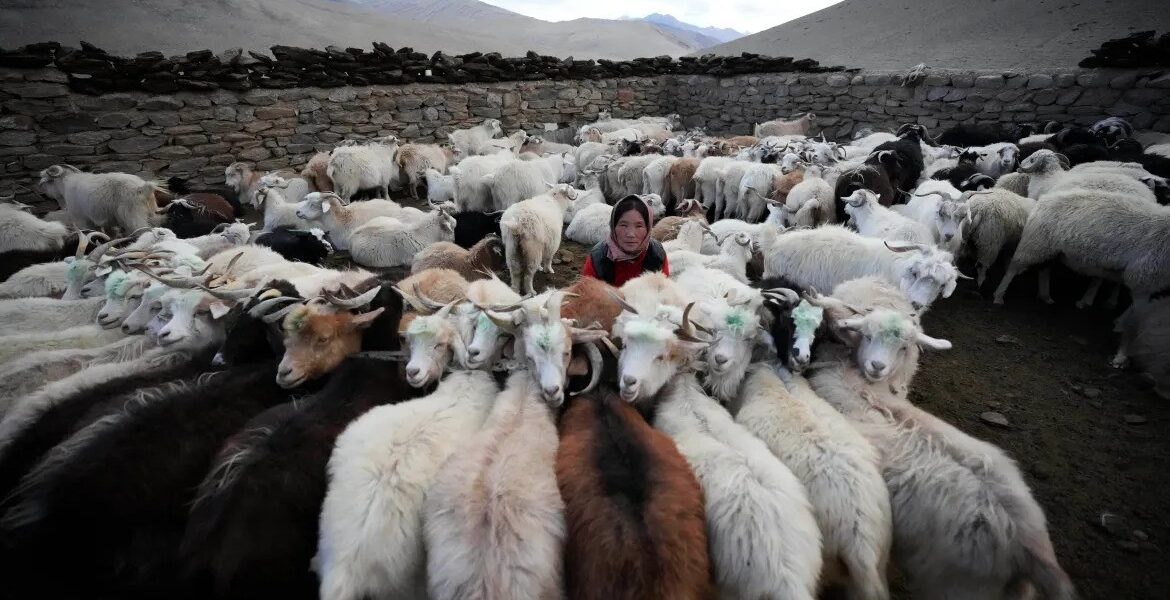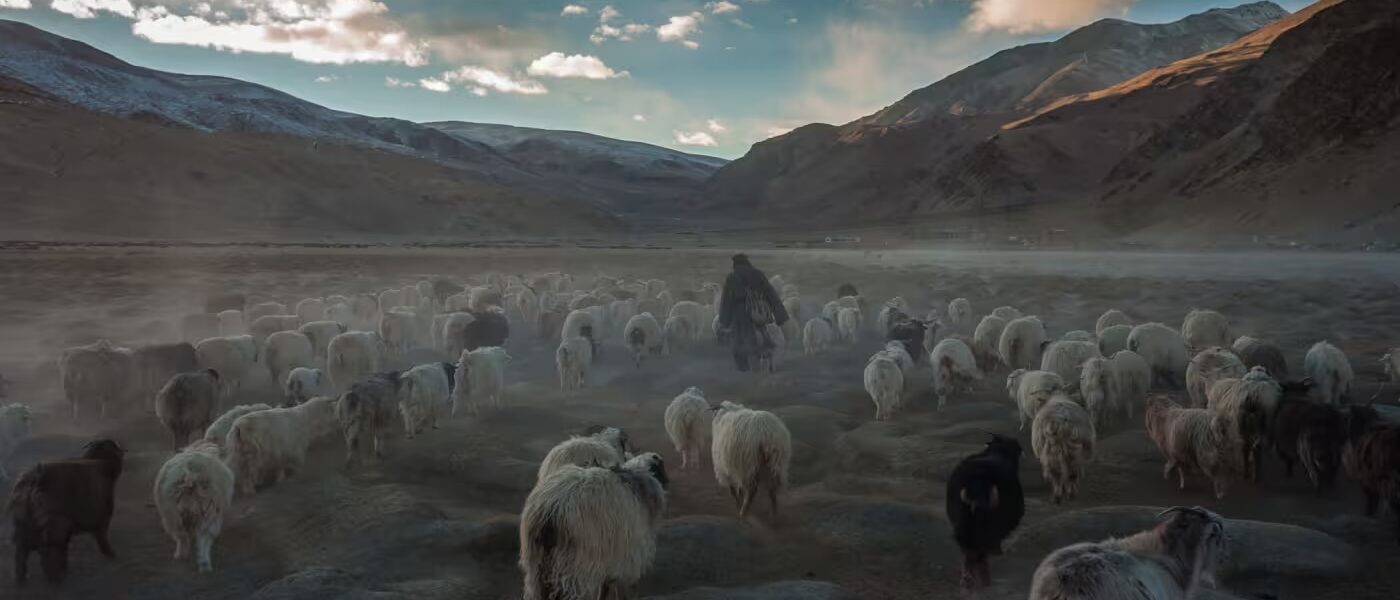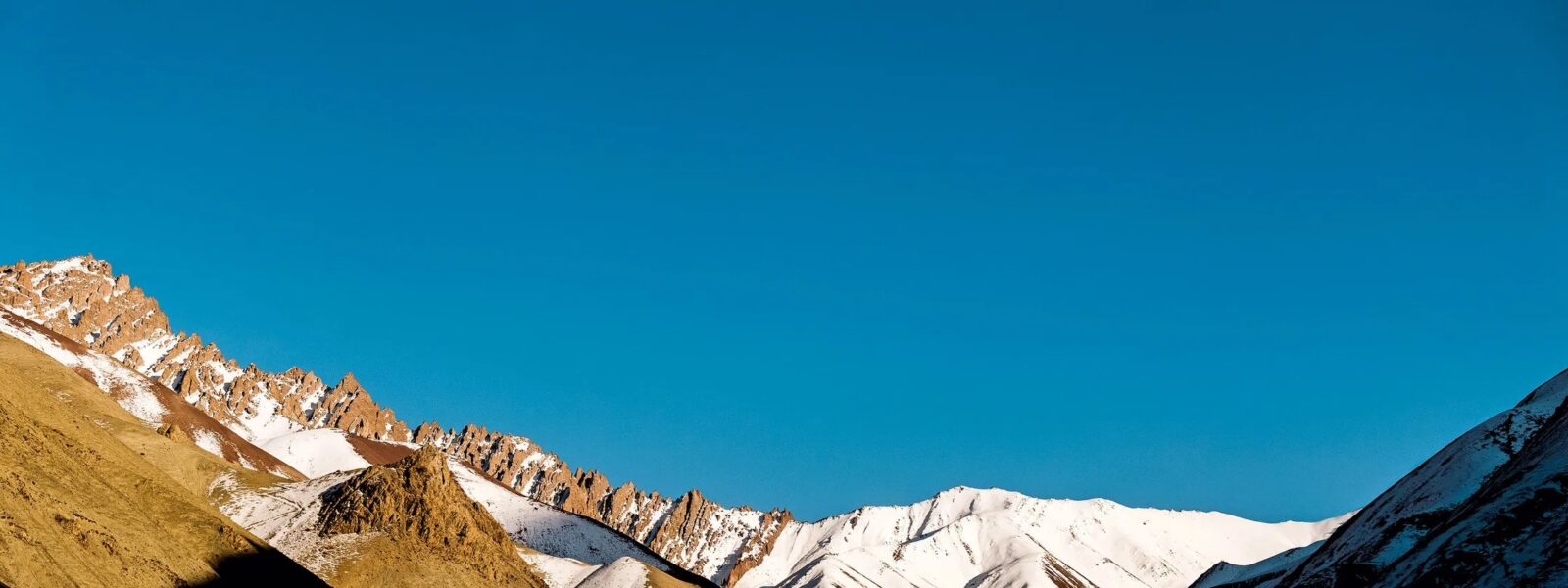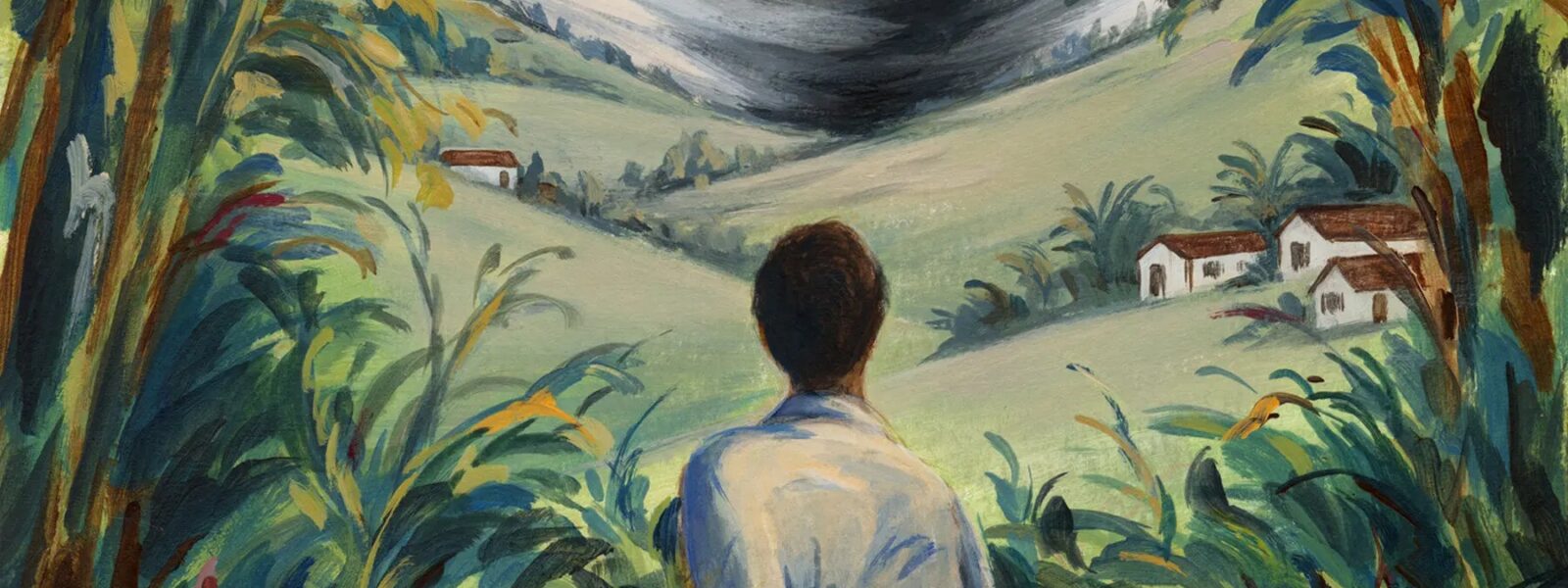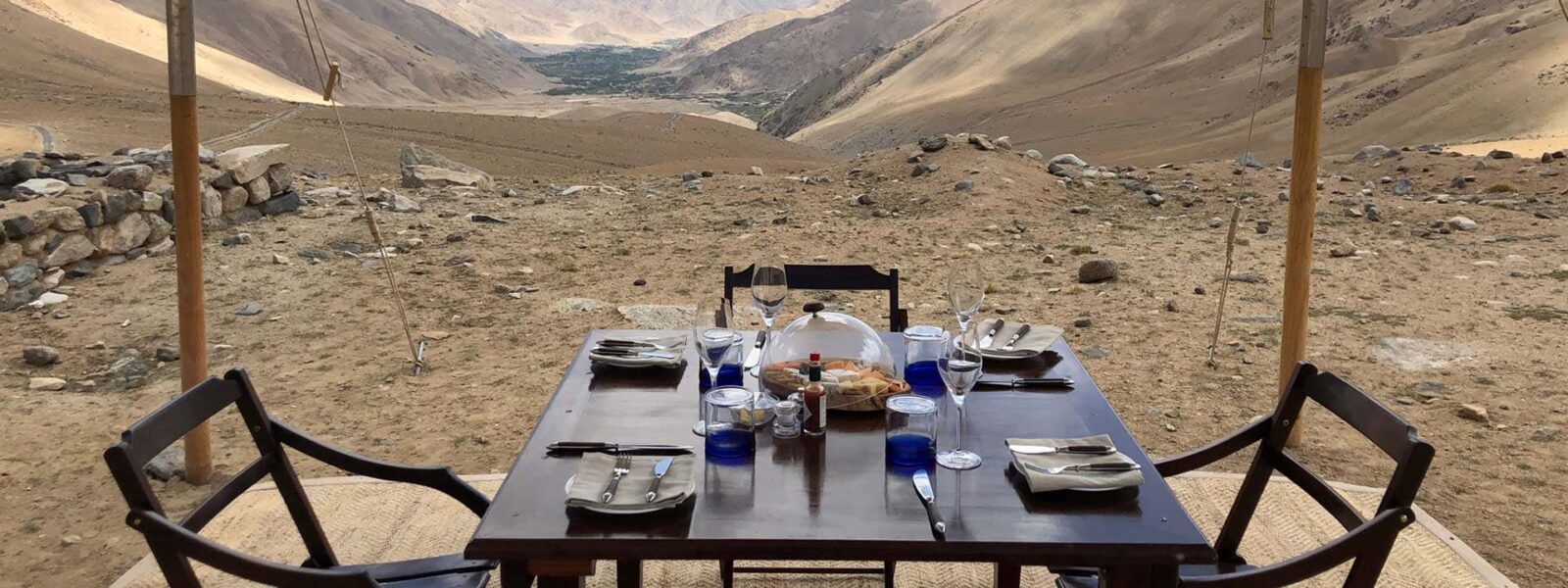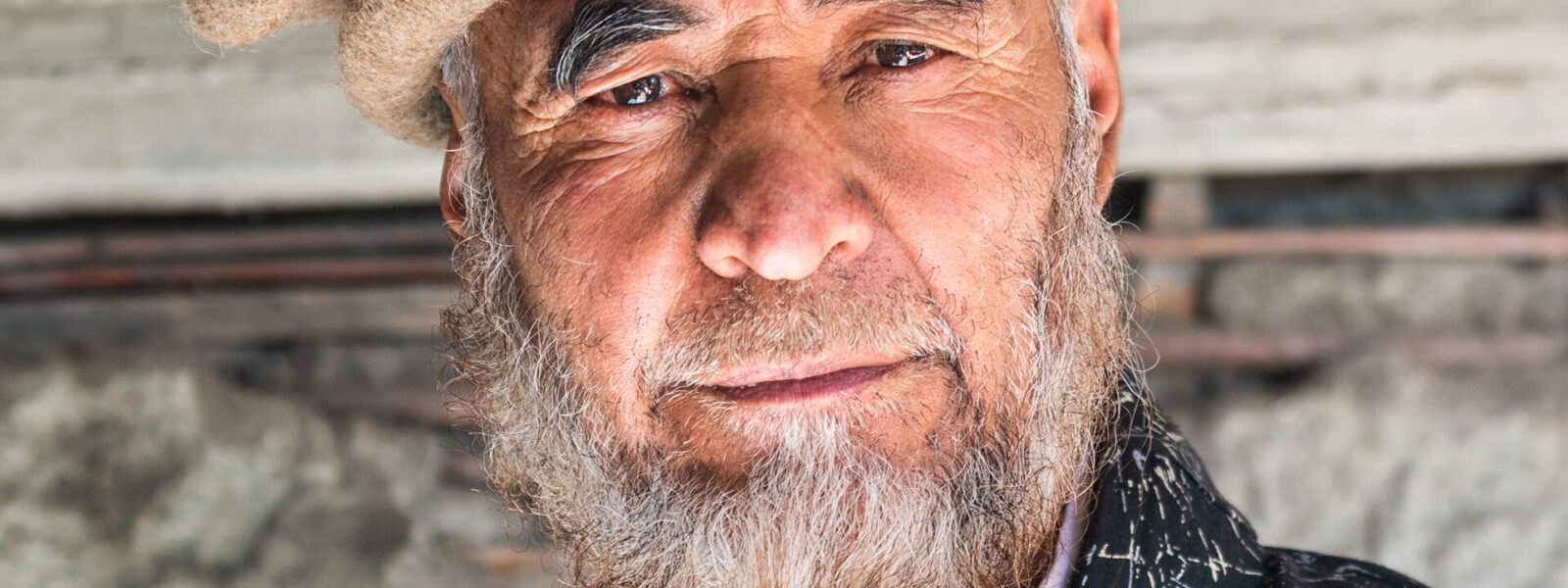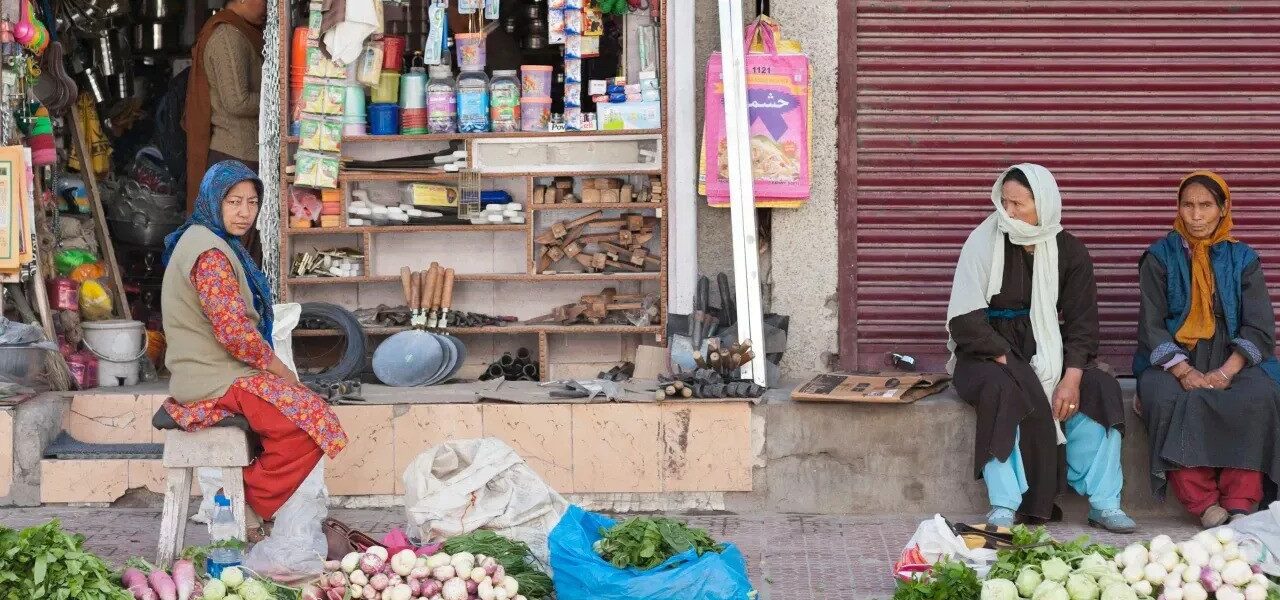The first thing I noticed wasn’t the mountains. It wasn’t the ancient ridgelines or the way the sun struck the peaks like a silent drumbeat echoing across the sky. No. The first thing I noticed was the air — thinner, quieter, and oddly intimate. It touched the back of my throat like a question I didn’t know I had been avoiding. It made me pause, not from beauty, but from breath.
I had landed in Leh, the capital of Ladakh, a high-altitude desert in northern India, nestled between the Karakoram and the Himalayas. But I hadn’t come looking for a destination. I had come searching for something I couldn’t find on a map. The ticket said India. The altitude said otherwise. And my body—my breath—confirmed what I would come to believe: this was not a place you simply visit. This was a place that invites you to dissolve.
What if a country wasn’t defined by lines on a map, but by how it alters your physiology? What if its borders were not fences or walls, but your own ribcage expanding as you learn to inhale differently? Ladakh demands such questions. At 3,500 meters above sea level, it’s not just your breath that changes—it’s your sense of time, of presence, of self. The thin air forces you to slow down. You are no longer the same person who boarded the plane in Delhi. You are a visitor not just to a location, but to a state of being.
There is a moment—somewhere between the descent from the plane and the first sip of butter tea—when it hits you: this is a country that exists only in breath. There is no embassy. No anthem. No border control. And yet, its sovereignty is absolute. You either surrender to it, or you suffer. There is no negotiation with oxygen. You either learn the rhythm of its silence or you leave. This is how Ladakh welcomes you: with stillness and demand.
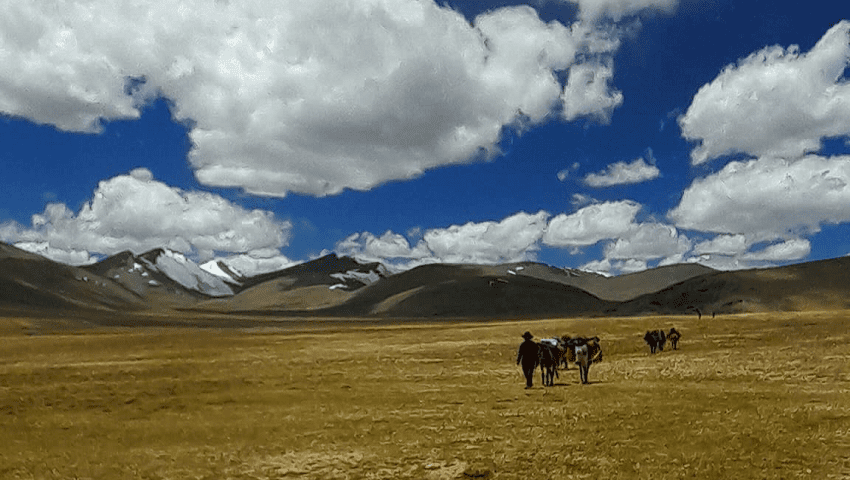
It is a nation made of altitude, air, and attention. And you become its citizen not by birthright, but by awareness. No passport needed—only presence. In this first chapter of arrival, what you thought was travel becomes something else. Less movement, more unraveling. Less itinerary, more intuition. You are here. But you are also somewhere else entirely—somewhere you can’t point to, only feel. Somewhere that asks nothing of you but breath.
The body keeps its own kind of map. Long before the mind can comprehend a new terrain, the lungs have already started drawing borders. In Ladakh, altitude makes a cartographer of your chest. Each breath is a sketch—tentative, questioning, incomplete. Your ribs expand not just to take in oxygen, but to understand where you are. At 4,000 meters above sea level, this act of breathing becomes an act of translation. It is here, in the hush between heartbeats, that a new geography begins to form.
Gone is the luxury of unconscious inhalation. In Ladakh, you breathe like you mean it. Slowly. Deliberately. Sometimes with effort, sometimes with awe. The air is different—rarer, drier, thinner. It resists the hurried traveler and insists on reverence. This is not air you consume. It is air you enter into relationship with. It listens to your heartbeat and responds with silence. It watches your every movement and decides whether to reward you with lightness or dizziness. This is not metaphor. This is physiology.
High-altitude consciousness is a real thing. The body slows, the thoughts soften, and time elongates like the shadows of the mountains at dusk. There are fewer words, fewer distractions. You become hyper-aware of the present moment, because your body requires it. That stray climb, that sudden burst of speed, could tip the balance. So you learn to walk slower. Think slower. Live slower. You align not with schedules, but with stillness. The very air instructs you.
It’s in this recalibration that Ladakh begins to teach. Not with language, but with breath. Not with facts, but with feelings. Your breath is no longer just an involuntary act—it becomes a form of listening. To the wind, to the rocks, to the silence that is older than any road or settlement. Each inhale is an invitation. Each exhale, a surrender. In time, you begin to sense the shape of things that aren’t visible. The way a valley cradles you without touching. The way the sky seems to lean in when you’re still enough to notice.
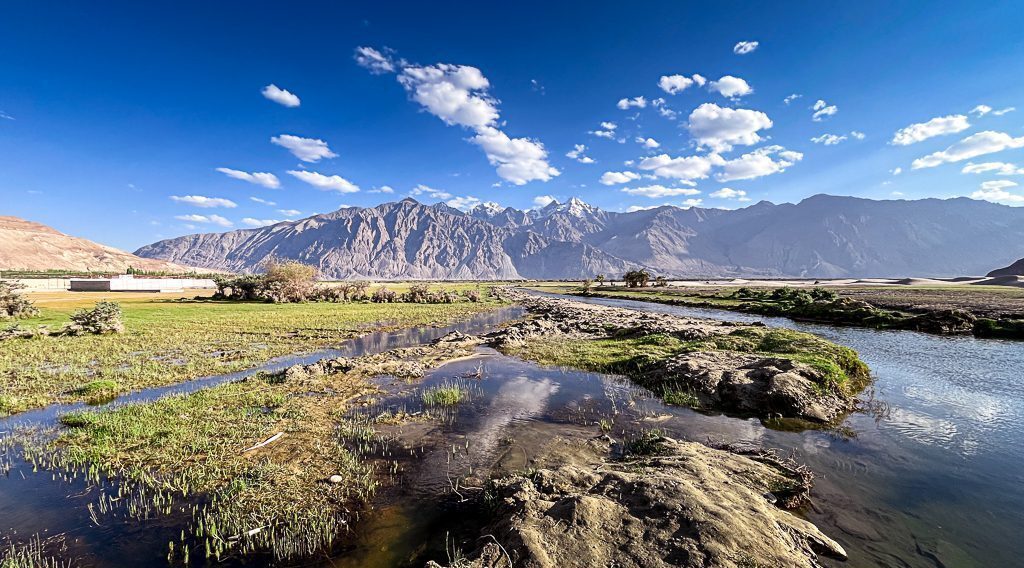
This is a geography you don’t see on Google Maps. It can’t be downloaded or bookmarked. It’s a felt terrain—woven through lungs, traced along nerves, inscribed inside the rhythm of breath. You don’t measure it in miles, but in stillness. You don’t capture it in photos, but in the soft recognition of your own slowing pulse. This is Ladakh’s invisible topography: a landscape carved not by rivers, but by awareness. A country of breath, where the path forward is inward.
Maps are designed to make sense of the world. They offer lines, names, borders—tools to contain the chaos of geography and history. But in Ladakh, those tools begin to feel inadequate. You can unfold a map and trace your finger from Nubra to Zanskar, from Tso Moriri to Pangong. But what the map cannot show is the sensation of standing in the middle of that silence, of being surrounded by mountains that do not care what name you call them. What the map cannot account for is what it feels like to vanish into stillness.
Ladakh defies cartographic language. It belongs to multiple countries, yet to none. It is held by India, claimed by China, remembered by Tibet. The borders on paper may appear solid, but here on the ground, they blur. There are villages divided by invisible lines. There are rivers that shift loyalties with the seasons. There are peaks that watch silently as nations debate ownership. And there are people who live with a kind of quiet sovereignty—untethered to the arguments of men.
This is not a political statement. It is a statement of presence. In Ladakh, you begin to understand that a place can exist beyond nationhood. It can be something else entirely—a realm of breath and perception, a country of inner terrain. Here, a rock is not Indian or Chinese. A breeze does not require a passport. The thin air makes all ideology seem cumbersome, all bureaucracy absurd. There are no embassies in the wind.
It is in this silence that Ladakh reveals itself as an invisible country. Not invisible because it is hidden, but because it is felt rather than seen. A traveler walking these lands does not cross borders—they dissolve. The only boundaries are those between your thoughts and the moment unfolding in front of you. And the only direction is inward. You begin to ask: if a country can exist without politics, without capital cities or flags—what then is a country?
In this way, Ladakh becomes a kind of philosophical frontier. A challenge to the idea that a nation must be something administered or defined. It is, instead, something you enter through attention. Through breath. It is a nation that asks nothing but that you listen. And what you hear—if you are quiet enough—is not silence, but freedom.
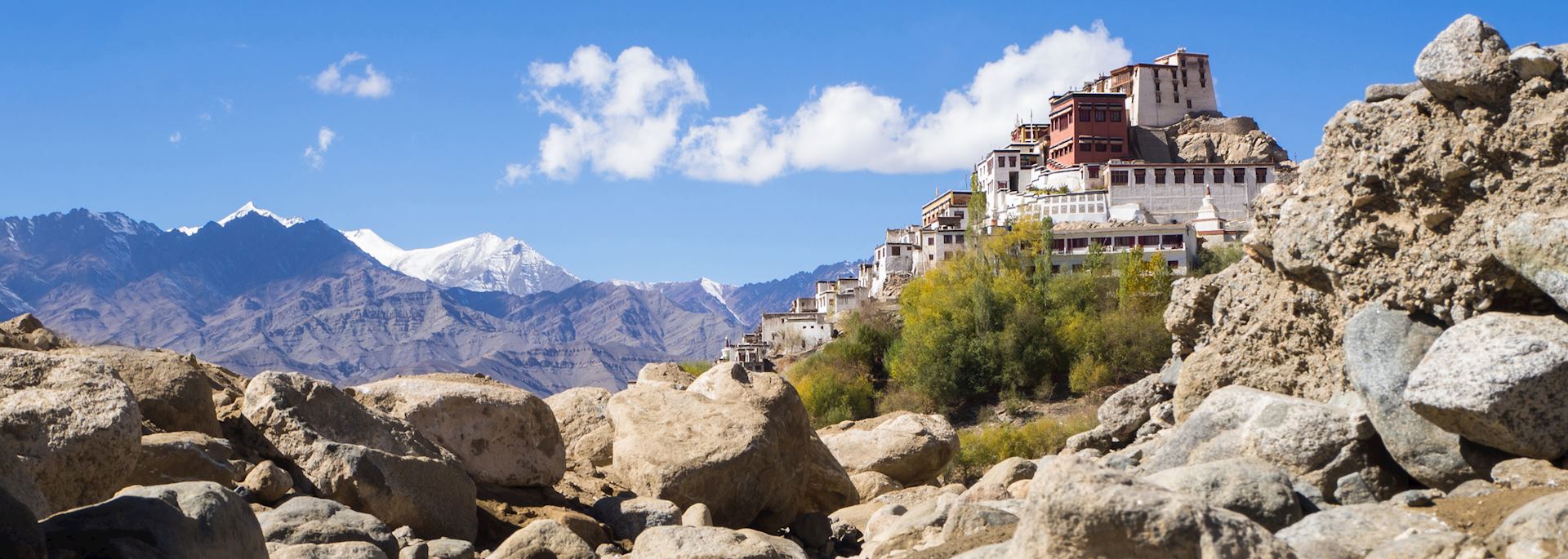
Stillness is often mistaken for absence. But in Ladakh, stillness is not an emptiness—it is a form of expression. It is the language of the land, and it speaks louder than slogans or symbols. In a region long defined by its strategic location, its borders, and its surveillance, it is the silence between those watchful forces that tells the truest story.
There are checkpoints here. Soldiers with rifles. Flags fluttering in the mountain wind. But beneath all of that—the spectacle of sovereignty—there is something deeper, older, more ungovernable. A silence that outlasts politics. A quiet that pulses not from control, but from endurance. It is the stillness of a place that has learned to outlive noise. It is not resistance in the conventional sense. It is the resistance of breath, of stone, of presence that refuses to vanish.
The politics of silence in Ladakh are subtle but unrelenting. It’s the shepherd who speaks only when necessary. The nun whose prayers echo off canyon walls. The child who watches without a word as tourists pass, wrapped in down jackets and digital cameras. To them, time is not measured in appointments or policies. It’s measured in the thawing of rivers. In the angle of light across the gompa wall. In the heartbeat that slows when you learn to match the land’s own rhythm.
There is a lesson here, for those willing to hear it. That power does not always raise its voice. That presence does not always declare itself. In Ladakh, stillness becomes a form of authorship. A way of shaping meaning without shouting. Of holding space without occupation. The land teaches this. And the people—those who have stayed through storms and solitude—embody it.
To travel through Ladakh is to enter a quiet that reorganizes your thoughts. You come to understand that silence is not the opposite of language. It is its origin. And in that silence, the pulse of something ancient and unbordered begins to rise. The heartbeat of a country that exists in no constitution, no anthem, no ideology. A country that draws no distinction between citizen and stranger, only between those who rush—and those who listen.
This is not silence as void, but silence as structure. As law. As invitation. Here, in the Himalayan hush, a new kind of nation begins. Not in declarations, but in stillness. Not in monuments, but in the breath between sentences. And once you feel it, you never truly leave.
No one stamps your passport when you enter this country. There are no customs officials to ask your purpose, no visas to declare your intentions. And yet, the border is very real—etched not in paper, but in pulse and perception. The moment your breath begins to match the rhythm of the land, the moment your gaze slows to the pace of the wind through juniper, you’ve arrived. You are now a citizen of a nation that cannot be seen, only sensed.
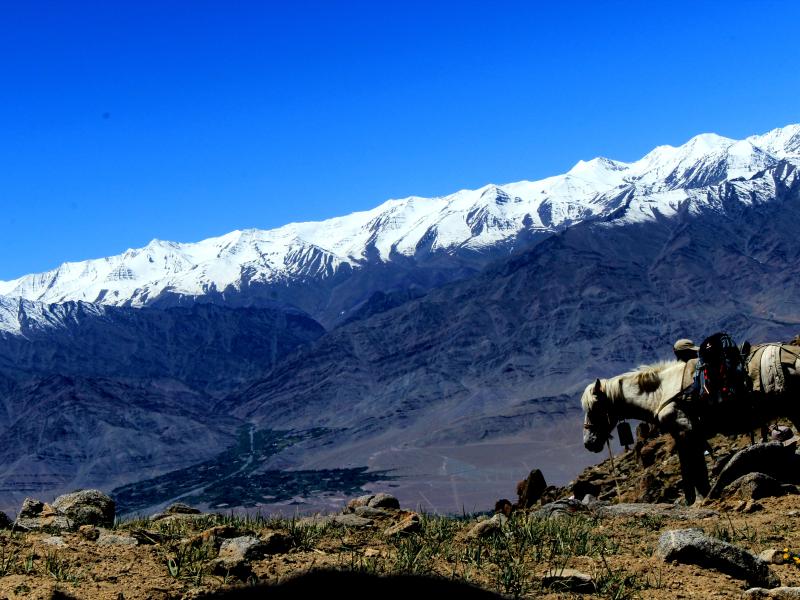
To become part of Ladakh is not to claim it, but to let it claim you. It begins with the breath. Not just because of the altitude, though the thin air certainly plays its part. It begins because Ladakh asks you to stop being who you were. It strips away momentum. It interrupts habit. You stop rushing. You stop narrating. You begin to observe. And then, almost imperceptibly, you begin to belong—not to a group or a flag—but to a frequency.
This is not tourism. This is transformation. Ladakh does not offer “attractions.” It offers attention. The kind that doesn’t come from looking at something new, but from seeing in a new way. A yak moving across the valley becomes a revelation. A line of prayer flags fluttering against the indigo sky becomes scripture. You learn to read a different language—one made of wind, shadow, and the ever-changing face of stone.
Experiential nationhood is earned, not given. In Ladakh, that means waking before sunrise to watch light fall across a frozen stream. It means sitting beside a monk who has not spoken for days, and somehow understanding everything. It means breathing in air so sharp it stings—and then realizing that the sting is part of the welcome. You are being introduced to a reality that does not flatter your expectations, but reshapes them.
Here, citizenship is not a matter of documents. It’s a matter of surrender. You become a part of this place not by asserting your identity, but by loosening it. You let go of itineraries. You forget what day it is. You stop counting how many monasteries you’ve visited, and start remembering how the wind felt in your lungs at 4,500 meters. That is your entry stamp. That is your residency card. You are not here to collect experiences—you are here to be transformed by them.
Ladakh doesn’t ask you to visit. It asks you to listen. And when you do, really do, you find yourself invited into a country made not of stone and soil, but of breath. It is invisible, unbordered, and utterly unforgettable.
Ladakh is more than a place. It is an idea. A metaphor dressed in mountain light, a mirror held up to our deepest assumptions about land, belonging, and identity. You come here expecting terrain, and you receive philosophy. You arrive looking for landscapes, and instead, you find questions—about borders, about selfhood, about what it means to belong to something vast and wordless.
In the high silence of the Himalayas, Ladakh becomes a metaphor for a different kind of nation. One not built on industry or inheritance, but on attention. Here, the currency is presence. The law is stillness. The anthem is the wind whispering through chortens and broken prayer wheels. There are no official languages—only the fluency of perception. The longer you stay, the more fluent you become.
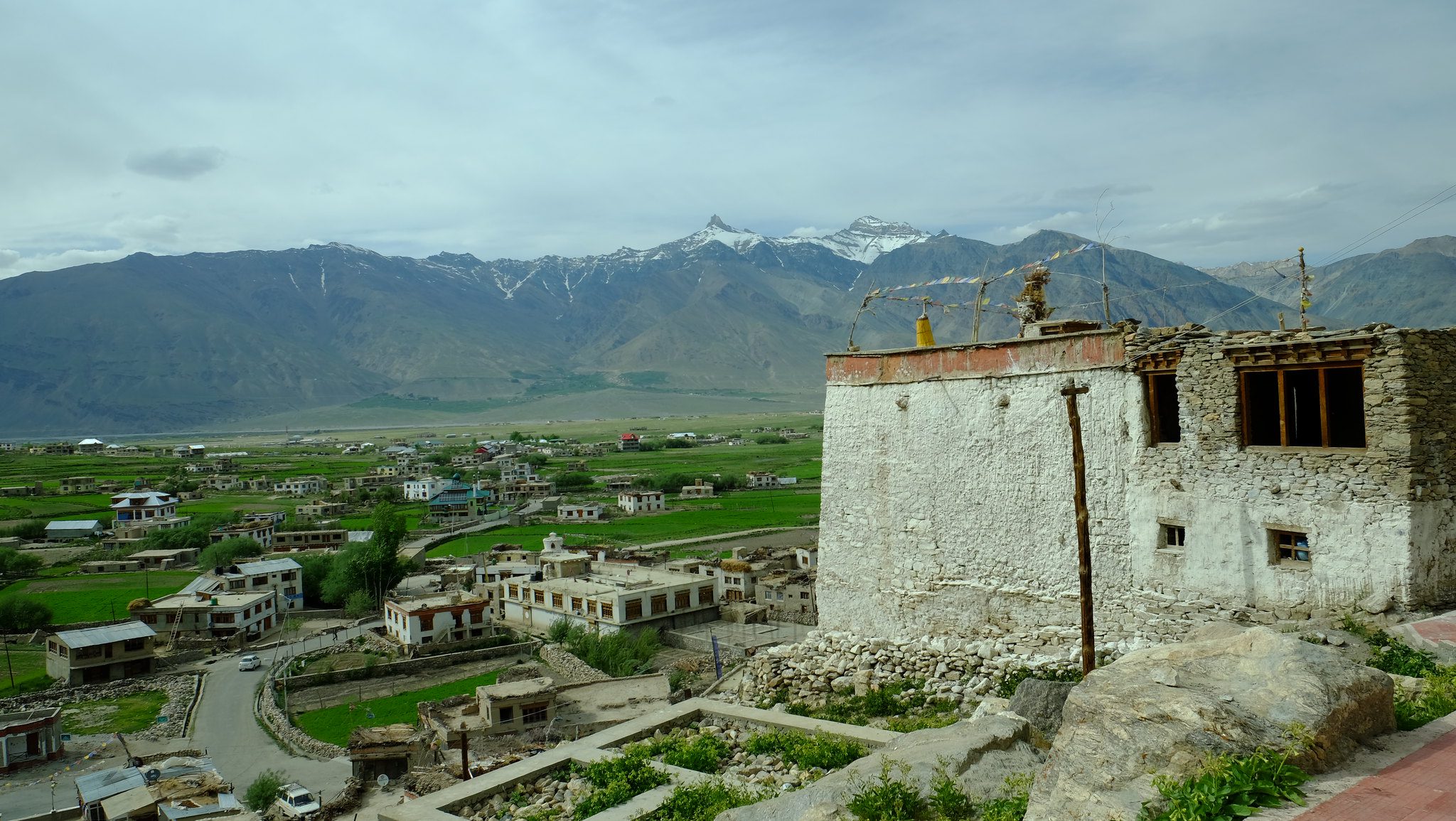
To say Ladakh is a country is not a claim of sovereignty—it is a proposal of possibility. A country that breathes. A country that does not ask for allegiance, only awareness. One that cannot be captured, bought, or sold. It doesn’t advertise itself in brochures or shout through hashtags. It simply waits—timeless, unmoved—until the right kind of traveler arrives. And when they do, Ladakh opens not with noise, but with space. It offers not explanations, but metaphors.
You begin to think differently here. You notice the structure of your thoughts. You see how your own mind tries to map, define, grasp—and then you feel that grasp loosen. The land won’t let you hold on. It won’t reduce itself to meaning. It is not a metaphor in service of your narrative—it is a metaphor that dismantles your narrative altogether. It makes room for something older than understanding. Something like truth.
Ladakh teaches the traveler to become a reader again. Not of books, but of terrain. Of clouds. Of the spaces between things. You begin to see meaning not in objects, but in relationships. Between stone and shadow. Between your body and the wind. Between a single breath and the history of the earth. These are the scriptures Ladakh writes—ephemeral, untranslatable, yet deeply known.
And when you leave, you carry it with you—not as a destination conquered, but as a question asked. What is a country, really? What is belonging? Where do you end, and where does the world begin? These are not inquiries to be answered, but lived. Ladakh is the beginning of that living. A metaphor, yes—but one that breathes. One that waits. One that remains long after the flight has taken off, and your feet have returned to sea level.
Long after you’ve left Ladakh, the breath remains. You may find yourself back in the city, where horns replace wind and buildings block out the sky. Your schedule resumes its rhythm. Notifications light up your phone like artificial stars. But somewhere in the background, quieter than thought, Ladakh lingers. In your lungs. In your blood. In the pace at which you now walk. Something has shifted—and you know it wasn’t just the altitude.
What remains is not a memory in the traditional sense. It is not tied to a photograph or a landmark. It’s not the name of the pass you crossed or the monastery where you sat. It is something less graspable—and far more intimate. It is the rhythm of your breath slowing at dawn. The weight of silence pressing gently against your shoulders. The moment when you exhaled and, for the first time, didn’t need to speak.
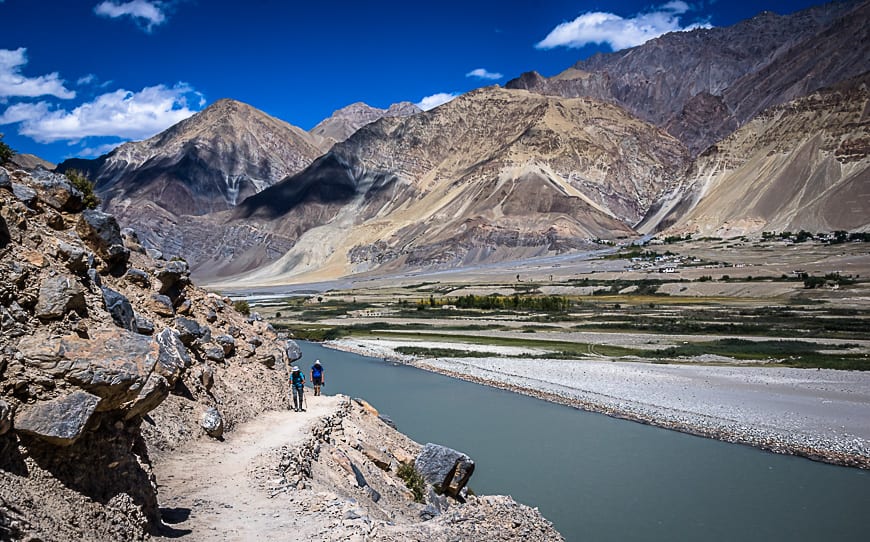
This is how Ladakh remembers you.
Some places demand to be remembered in stories. Ladakh demands to be remembered in stillness. Its imprint is not in the mind, but in the body. A subtle re-tuning of your senses. A slight recalibration of your urgency. You notice yourself listening more closely now. You pause before replying. You step outside more often—not for air, but for connection. The kind of connection that cannot be manufactured. The kind that once entered your bloodstream at 4,000 meters and never left.
Ladakh is not a place you check off a list. It is a place that rewrites the list entirely. It does not ask you to remember facts, but to remember presence. And presence, once awakened, does not fade easily. It slips into your day like sunlight through curtains. It alters your sense of what matters. It turns breath into language. And in doing so, it makes the ordinary sacred again.
There are places that call you to return. Ladakh does not call. It waits. Quietly, like a thought you haven’t finished thinking. Like a breath you haven’t fully released. Like a truth that feels less like knowledge and more like recognition. If you go back—and you might—it won’t be because of a travel plan. It will be because something in your chest remembered how it felt to breathe without boundaries. To belong without needing to belong.
That is the final gift of the country that exists only in breath: that even in your leaving, it stays. That in every inhale, there is a trace of mountains. That somewhere between oxygen and memory, a quiet country unfolds. Unwritten. Unseen. And absolutely real.
Declan P. O’Connor
Columnist and wanderer of invisible nations. He writes where maps fall silent, and breath begins.

